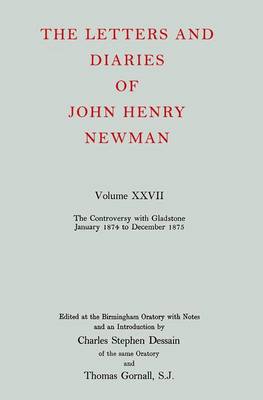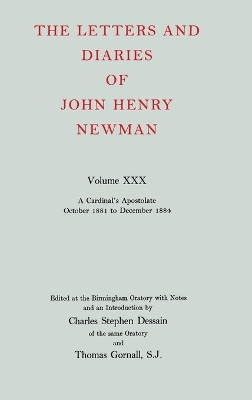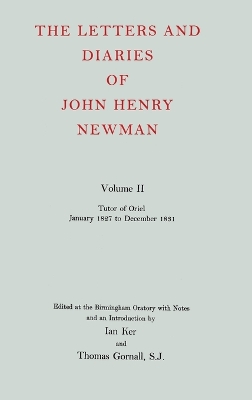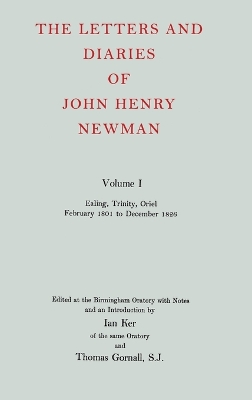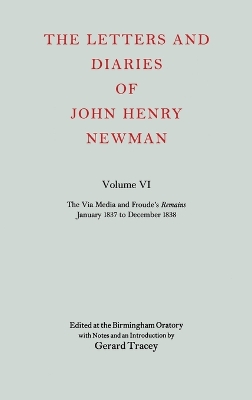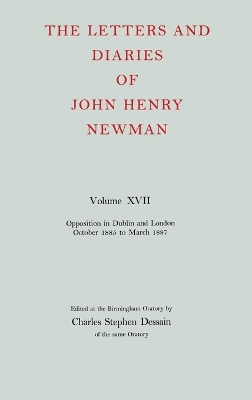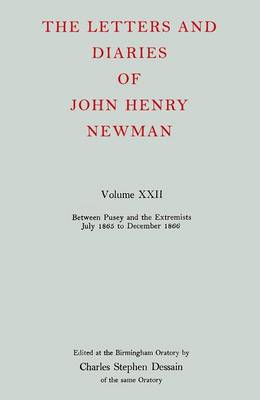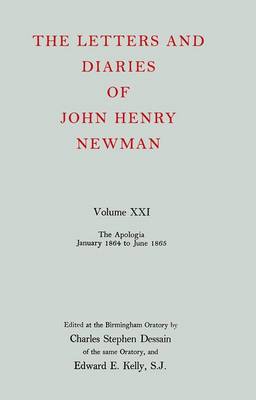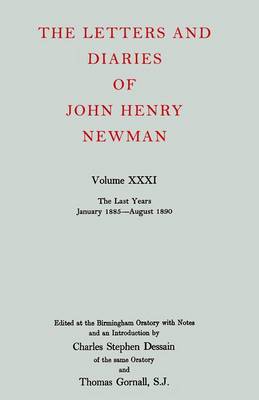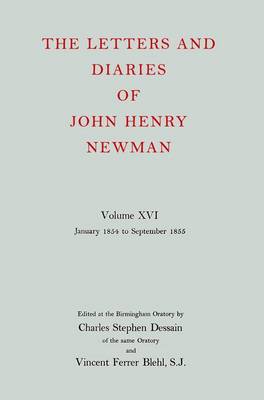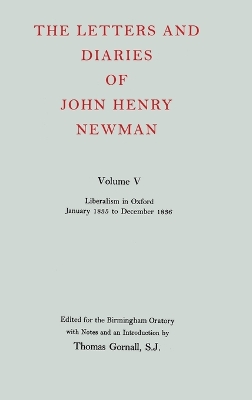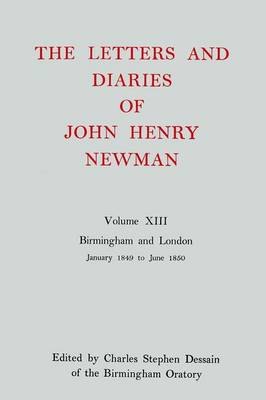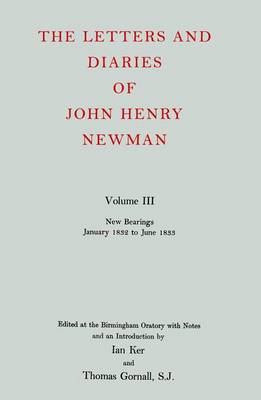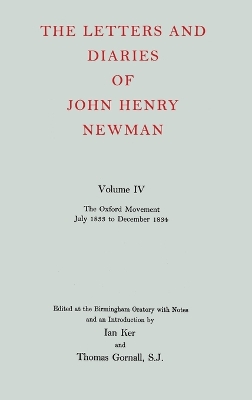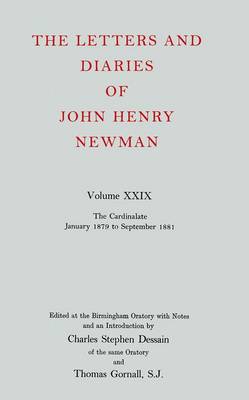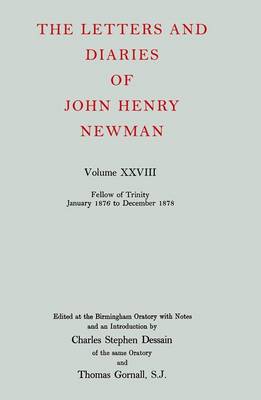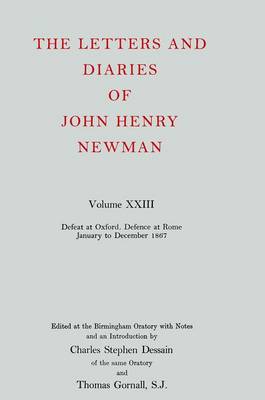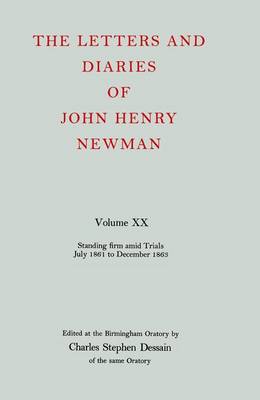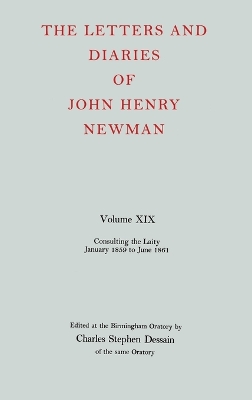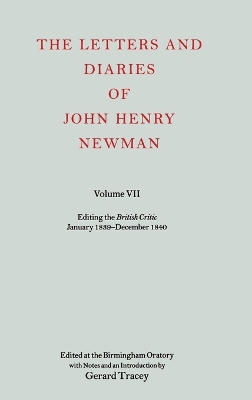The Letters and Diaries of John Henry Newman
20 total works
This volume covers a crucially important and significant period in Newman's life. The Church of England bishops' continuing condemnation of Tract 90 - plus Pusey's two-year suspension for preaching a university sermon on the Real Presence - are major factors in Newman resigning as Vicar of St Mary's, Oxford. His doubts about the Church of England are deeper and stronger than ever, and he is moving closer to Rome. William Lockhart's sudden defection to Rome in August 1843 precipitates his resignation. He preaches his final Anglican sermon, 'The Parting of Friends', and retires into lay communion at Littlemore. The first edition of University Sermons, including the celebrated sermon on theological development, virtually sells out within a fortnight.
Volume I: Ealing, Trinity, Oriel, February 1801 to December 1826
by John Henry Newman
A scholarly edition of the letters and diaries of John Henry Newman. The edition presents an authoritative text, together with an introduction, commentary notes, and scholarly apparatus.
This volume covers a crucially important and significant period in Newman's life. The Church of England bishops' continuing condemnation of Tract 90 - plus Pusey's two-year suspension for preaching a university sermon on the Real Presence - are major factors in Newman resigning as Vicar of St Mary's, Oxford. His doubts about the Church of England are deeper and stronger than ever, and he is moving closer to Rome. William Lockhart's sudden defection to Rome in August 1843 precipitates his resignation. He preaches his final Anglican sermon, 'The Parting of Friends', and retires into lay communion at Littlemore. The first edition of University Sermons, including the celebrated sermon on theological development, virtually sells out within a fortnight.
The Letters and Diaries of John Henry Newman: Volume V: Liberalism in Oxford, January 1835 to December 1836
by John Henry Newman
This volume covers a crucially important and significant period in Newman's life. The Church of England bishops' continuing condemnation of Tract 90 - plus Pusey's two-year suspension for preaching a university sermon on the Real Presence - are major factors in Newman resigning as Vicar of St Mary's, Oxford. His doubts about the Church of England are deeper and stronger than ever, and he is moving closer to Rome. William Lockhart's sudden defection to Rome in August 1843 precipitates his resignation. He preaches his final Anglican sermon, 'The Parting of Friends', and retires into lay communion at Littlemore. The first edition of University Sermons, including the celebrated sermon on theological development, virtually sells out within a fortnight.
This volume covers a crucially important and significant period in Newman's life. The Church of England bishops' continuing condemnation of Tract 90 - plus Pusey's two-year suspension for preaching a university sermon on the Real Presence - are major factors in Newman resigning as Vicar of St Mary's, Oxford. His doubts about the Church of England are deeper and stronger than ever, and he is moving closer to Rome. William Lockhart's sudden defection to Rome in August 1843 precipitates his resignation. He preaches his final Anglican sermon, 'The Parting of Friends', and retires into lay communion at Littlemore. The first edition of University Sermons, including the celebrated sermon on theological development, virtually sells out within a fortnight.
This volume covers a crucially important and significant period in Newman's life. The Church of England bishops' continuing condemnation of Tract 90 - plus Pusey's two-year suspension for preaching a university sermon on the Real Presence - are major factors in Newman resigning as Vicar of St Mary's, Oxford. His doubts about the Church of England are deeper and stronger than ever, and he is moving closer to Rome. William Lockhart's sudden defection to Rome in August 1843 precipitates his resignation. He preaches his final Anglican sermon, 'The Parting of Friends', and retires into lay communion at Littlemore. The first edition of University Sermons, including the celebrated sermon on theological development, virtually sells out within a fortnight.
This volume covers a crucially important and significant period in Newman's life. The Church of England bishops' continuing condemnation of Tract 90 - plus Pusey's two-year suspension for preaching a university sermon on the Real Presence - are major factors in Newman resigning as Vicar of St Mary's, Oxford. His doubts about the Church of England are deeper and stronger than ever, and he is moving closer to Rome. William Lockhart's sudden defection to Rome in August 1843 precipitates his resignation. He preaches his final Anglican sermon, 'The Parting of Friends', and retires into lay communion at Littlemore. The first edition of University Sermons, including the celebrated sermon on theological development, virtually sells out within a fortnight.
This volume covers a crucially important and significant period in Newman's life. The Church of England bishops' continuing condemnation of Tract 90 - plus Pusey's two-year suspension for preaching a university sermon on the Real Presence - are major factors in Newman resigning as Vicar of St Mary's, Oxford. His doubts about the Church of England are deeper and stronger than ever, and he is moving closer to Rome. William Lockhart's sudden defection to Rome in August 1843 precipitates his resignation. He preaches his final Anglican sermon, 'The Parting of Friends', and retires into lay communion at Littlemore. The first edition of University Sermons, including the celebrated sermon on theological development, virtually sells out within a fortnight.
Volume XX: Standing Firm Amid Trials, July 1861 to December 1863
by John Henry Newman
Volume XIX: Consulting the Laity, January 1859 to June 1861
by John Henry Newman
